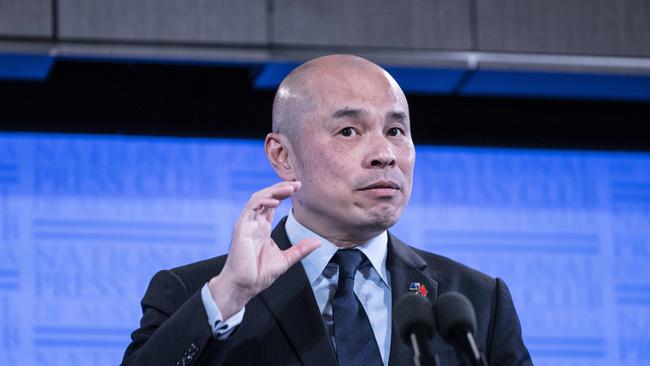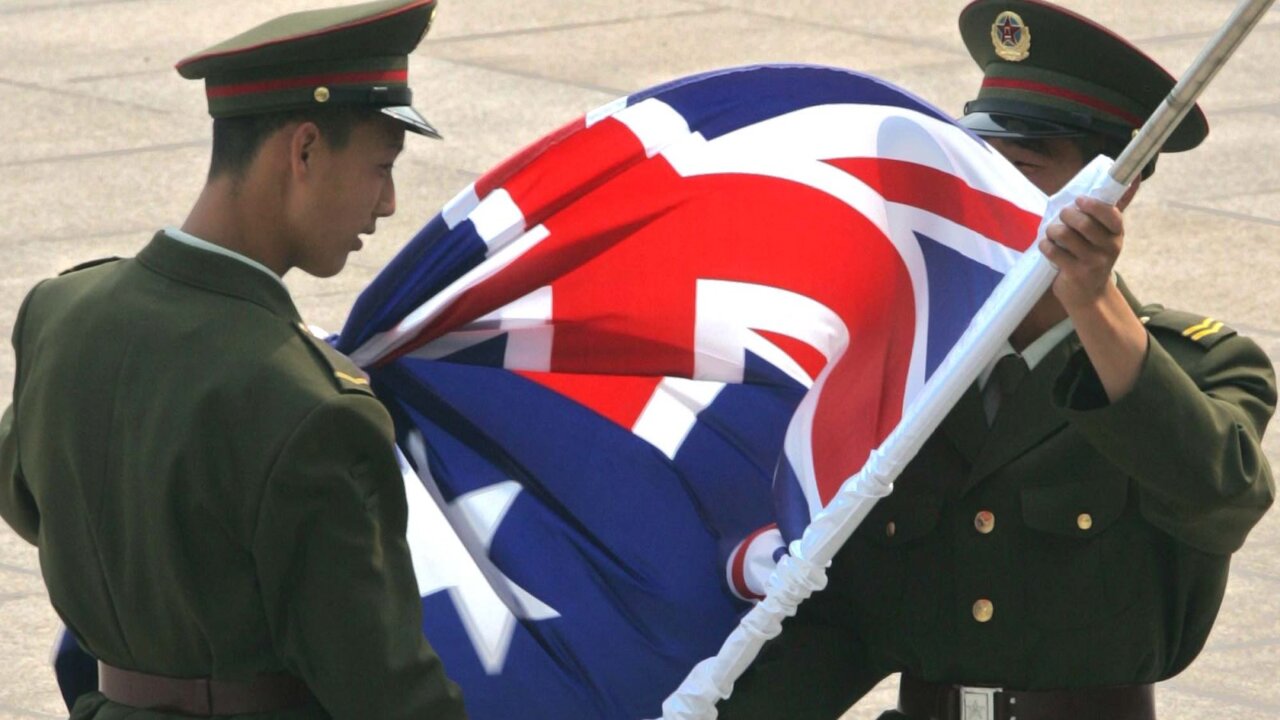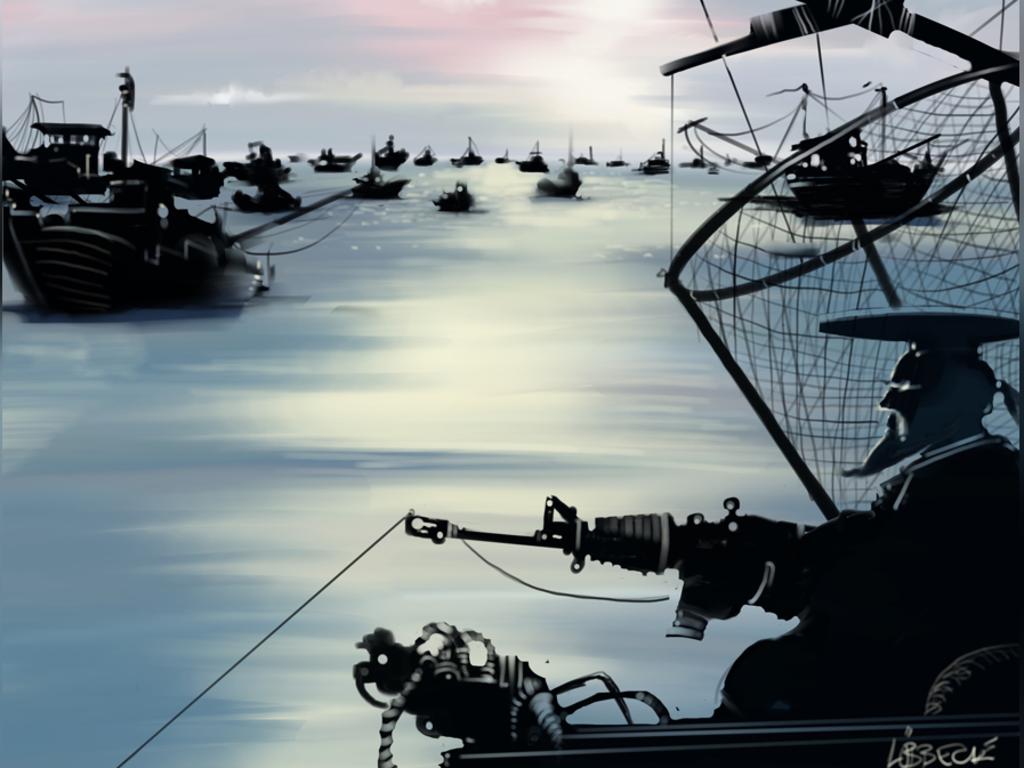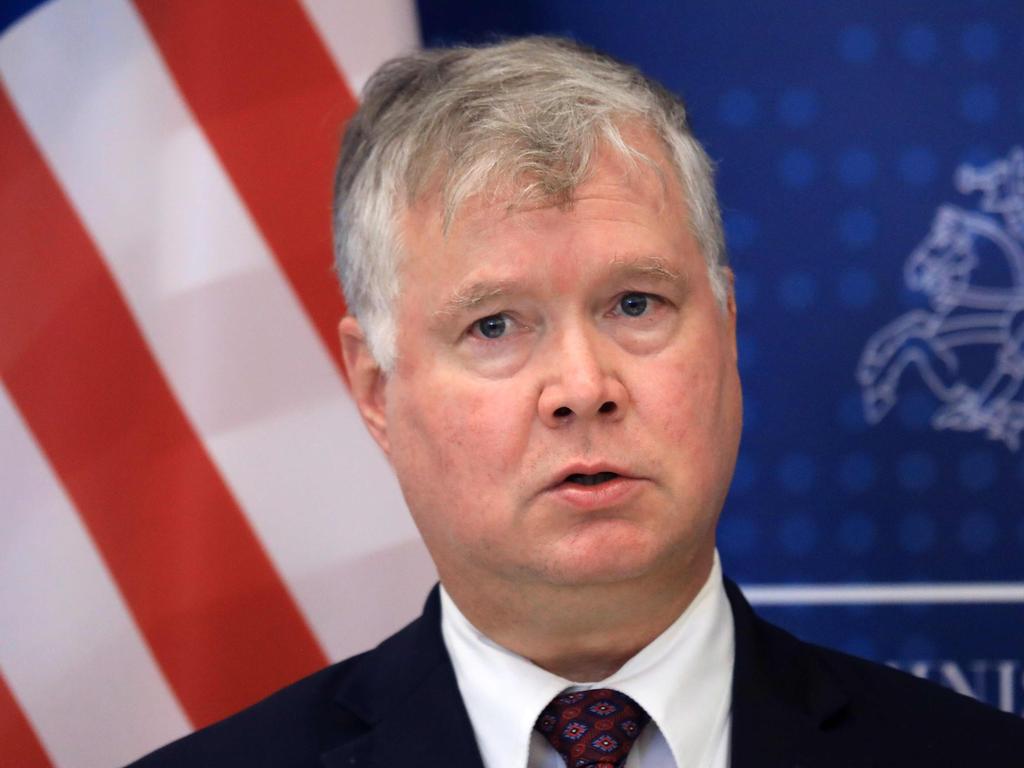
But at almost exactly the same time as Cheng was being detained, China sent an olive branch to Australia. If Australians want to repair the relationship with China, the Middle Kingdom has shown us how to do it.
So today I want to simply describe the Chinese offer, mindful that we are dealing with a very different and tougher China to the nation of five years ago.
At the same time, Australians’ natural inclination is not to bow to threats, which means that commenting on peace offers is unpopular. But I think as a nation we need to reflect on the Chinese offer and to at least ponder the fact that by making things worse we are thrown deeper into the US camp increasing the chances of an actual war.
Because there is now no political contact between Australia and China, the peace offer was delivered at the National Press Club by China’s Deputy Head of Mission Wang Xining. We might not agree with Wang but we need to listen.
The trigger for the deepening dispute was Australia’s call for an inquiry into the origins of the virus.
Wang says China also wants to know the origins of the virus but our call for an inquiry did not involve the World Health Organisation and was focused on one possible source, Wuhan.
We did not talk with China before making the demand and it came at a time when the US was inflaming opinion in China by blaming China for allowing the virus to get out of control in the US.
Given that statement from Wang, the trigger is easy to fix. .
The world now has an inquiry via the WHO, so the trigger issue can be put aside if both China and Australia recognise that they need improve communications. But the real cause of the dispute is much harder to address.

Regular criticism
The Chinese anger with Australia stems back to former prime minister Kevin Rudd who spoke in Mandarin to Beijing University criticising China. Our foreign affairs department, led by Foreign Minister Julie Bishop, has been a regular critic of the Chinese political system and human rights. This made the Chinese very angry.
Accordingly, the China peace plan as set out by Wang starts with these words: “We should respect each other’s sovereignty and territorial integrity, and refrain from interfering in other’s internal affairs. We should respect each other’s choice of social and political system and mode of development, and refrain from imposing one’s own idea onto the other. We should respect each other’s legal system and rule of law and refrain from interrupting the other’s legal proceedings and undertakings.
“China does not interfere in Australia’s internal affairs. Nor do we have any intention to change Australia’s political and social culture … … China expects reciprocity in terms of respect, which I believe should arise from better mutual understanding”.
Australia’s problem is that we have a department of foreign affairs that sees imposing Australia’s views on China as our right. If we want a trade peace we must stop. In recent tines events in Hong Kong and the South China sea have inflamed opinions and made any peace process much harder.
Wang agrees there will be differences but emphasises: “Respect will anchor our relationship in the torrent of differences”.
No respect
Had we respected the Chinese political system we might have maintained close relations with China and would now be a real player in the artificial intelligence disputes with the US and the South China sea. We are now simply seen as reflecting the US view. Respect has gone.
If we want to resume relations with China and end the trade war then Wang points out that in two years it will be the fiftieth anniversary diplomatic relations between China and Australia. We can begin to prepare for a celebration.
Let me conclude with China’s glowing vision of the potential relationship as expressed by Wang via selected extracts from his speech:
“China has been Australia’s biggest trade partner for 11 years in a row and is now Australia’s largest source of international students and tourists, and more promisingly, most important collaborator on scientific research on account of the number of university research papers and mentions in the top 1 per cent of most-cited articles.
“This partnership is no mirage on the sea. It is the result of centuries of interaction and association between our peoples. It is the result of decades of trust-building between our leaderships.
“But it is no easy task to keep a partnership in good shape. It takes concerted determination and joint efforts to make it thrive. Married couples know how hard it is. While a rift between husband and wife hurts one family, a rift between two countries will hurt millions.
“As China and Australia sit geographically at the two ends of this region, trade and investment between us not only generates value for our business, create jobs for our people, increase revenue for our governments, but also bring opportunities to third-party business, instil vitality in neighbouring economies, and speed up regional economic development and integration”.
“Our vision is that both China and Australia will play active roles in promoting regional stability and prosperity and advocating world peace and development”.
And again, his clear message is: Respect will anchor our relationship in the torrent of differences.
Sadly I don’t think we want to listen and the South China sea makes the issues complex. But at least our farmers, universities, tourism operators, wine makers know how their enterprises can be restored.








Australia has a stark choice. The detention of high-profile Australian journalist Cheng Lei sends a clear message that Australia-China relationships are in danger of becoming much worse. Not only is the safety of Australians in China now jeopardised, but we are about so see severe damage to industries like wine, beef, grain farming, universities and tourism. We will simply not generate the community wealth to recover from the COVID-19 outlays.